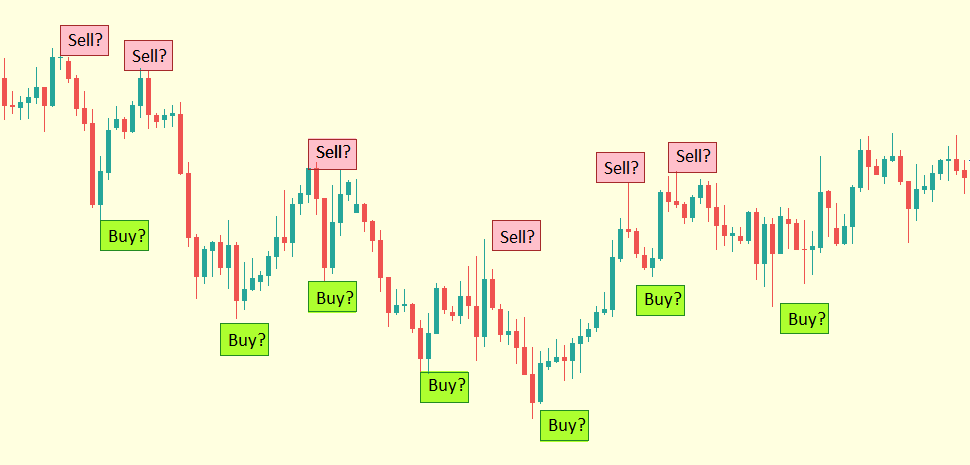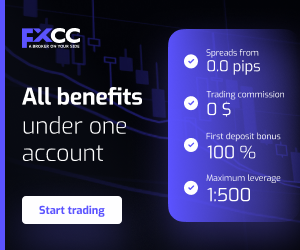What are forex signals
Identifying profitable trade opportunities and executing the right actions at the right time is the most daunting activity that plagues a lot of traders, mostly beginners. Challenges like this led to the provisions of forex trading signals. Forex signals are trade ideas and recommendations from expert financial analysts, professional traders, trading organisations, trading software and indicators. The signal consists of specific entry and exit plans (in terms of numbers or price levels) on a forex pair or trading instruments.
Irrespective of the level and skill of a trader, forex signals can be used as a great opportunity to enhance trading activities and increase or improve trading experience and consistent profitability in forex trading thereby rewarding the trader with higher returns and minimal effort.
While you have a good understanding of various trading strategies, forex signals provide real-time insight into the direction of price movement from the perspective of the signal providers. This is an advantage to forex traders especially beginners and novices who are still learning about the forex market and struggling to trade profitably, make money from the forex market as well as shorten their learning curve.
What makes up a forex trading signal
If you are new to trading, forex signals might seem complicated to comprehend in the beginning because of the few lines of data that must be imputed correctly into your trading platform but they are actually simple and brief. The signals usually begin with the designation of the asset or currency pair followed by a ‘Buy’ or ‘Sell’ indication and other price data and information.
A forex trading signal, either a direct market execution, stop order or limit order is incomplete if it doesn't contain the following.
- An Entry Price: Also known as the strike price. It is an exact price level from where the price movements of a forex pair is expected to Rally (on a long trade setup) or decline (on a short trade setup).
- Stop Loss(SL): In case a trade signal is not profitable or did not go as planned. This is the maximum defined risk or amount of pips that the trader must expect to lose from the trade setup.
- Take Profit (TP): This is the extent of how much price movement is expected to rally or decline. The ideal 'take profit' to 'stop loss' ratio is usually 3 to 1. For instance, if a trade signal has a profit objective level of 30 pips, then the ideal stop loss of the trade signal must be 10 pips.
- In addition, partial exit percentages and trailing stop (TS) price levels are very important data of a trade signal but they are optional and rarely provided.
How are forex trade signals generated?
Forex trading signals can be provided manually by humans, mostly professional analysts. They identify potential trade setups and trade ideas and they also predict the most probable direction of price movement by combining technical analysis, indicators and fundamental data.
Another means by which forex trading signals are generated is automatically by the use of software programmed with algorithms that analyses and identifies recurring patterns in the price movements of an asset or forex pair. These repeating patterns of price movements is then used to predict the future of price movement and predictions are then generated as a trade signal.

Forex trading signals and copy trading
The introduction of copy trading to the forex trading industry came in handy as an extension of forex trading signals with advanced technologies that guarantee auto mirroring of trade positions with little or no need for human intervention.
Take, for instance, a forex trading signal sent to different traders, the entry or strike price of the trade signal is going to vary among different traders because the signal will not be imputed into their trading platforms at the same time. Hence their strike price, especially from direct executions, is going to vary differently.
With the advent of copy trading, trading activities are able to be auto mirrored from professional trading accounts (preferably with extensive trade history of profitability and consistency) into one or many trading accounts so that the owners of the other accounts can make profits hands off the chart and trading app with little or no trading knowledge.
How does this work?
On most copy trading platforms, you have an option to select the particular forex trading account you prefer to mirror. You are provided key performance metrics that can be used to rate signal providers. They include daily ROI, monthly ROI, number of orders closed, number of profitable trades, best trades, minimum investments drawdown and so on.
Copy trading also has features that enable the trade copiers to choose a trading style that aligns with their risk tolerance and matches their trading goals. In essence, allowing traders to modify the sizes of trade positions with the take profit and stop losses inclusive.
Should I Use Forex signals in trading?
This decision is mostly influenced by your trading goals and ambitions. Trading signals come with the risk of having your trading decisions determined by a third party, while you are fully responsible for their outcomes. As a result, if you win a trade, you get to enjoy the full profits; however, if you lose a trade, you suffer the entire loss.
Where do you get forex signals and copy trading signal
A forex signal can be provided to any audience of traders by anyone within the forex trading community or the metaquote community. In other words, signals can also be provided by unprofessionals. That being the case, not every forex signal has credibility behind it and should be diligently checked or vetted into consideration.
Signal providers can be grouped into the following: Professional traders signals, indicators, affiliates and fraudsters.
- Professional traders are reliable and noteworthy. They could be forex mentors, financial market analysts, technical analysts e.t.c. They send out analysis and predictions of different forex pair.
- Affiliates of forex brokers. They publish signals to encourage traders to open their affiliated brokerage account, for which they will receive trade commission of your trades.
- Scammers and fraudsters. The try to use you in some way to get at your money and enrich themselves. They might just aim for email addresses, which they sell as data to a third party.
- Indicator and softwares. This signals and predictions of price movement are automatically generated by algorithms and sent out to traders in real time.
- Social trading. traders can implement social trading strategies powered by both and, two of the best copy trading platforms that boast the largest communities of traders in the world
How can I get free forex signals?
Most forex signals providers do charge for their services. Some might offer a free trial for a period of time depending on the subscription model of the signal providers.
You'll probably find a lot of results when searching for free forex signals, but unfortunately most of the results you will get are not reliable. The problem with free signals is that they often come from questionable sources. When it comes to valuable services such as forex signals, there are very few good signals that are out there for free. As long as it's worth trading on, the signal providers know it's worth paying for.
How to ensure you get the most of forex trading signals
To ensure that you are able to benefit and maximize the opportunity of forex signals please keep the following in check:
- Find the right broker
You must find a regulated broker with a very reliable platform that features easy, smooth and flash execution of forex trades.
- Choose the right signals provider
As we discussedd above “where to get forex signals and copytrading signals”. Finding a good signal provider of each of this category of providers can be very challenging. A good signal provider must hav an historical sccess rate of 50% and above for a period of atleast 6months.
- Back-testing and forward test
Make sure you can assess the trading performance of a signals provider before committing your funds to their signals. There are providers that offer a trial period, which ensures that you will only continue if you are satisfied with the service. Back-testing automated strategies will allow you to see how the software would perform under varying market conditions. Demo accounts are also recommended before investing real money in a signals provider.
- Modification and Adjustments
Your trading account may not fit the investment objectives of a signals provider, which may mean that your trading account is not suitable for the signals provided. Zulutrade, for example, offers high customization capabilities so that your trading goals and ambitions can be aligned with a signal provider that is profitable for you.
Trading signals are only useful if they are delivered in a timely manner in a market as fast and dynamic as forex because late signals could render a trader unprofitable. Trade signals are sent to traders by email, SMS or push notifications in real-time to ensure they're relevant. In addition to receiving their forex signals directly on their trading platform, traders can also install platform add-ons.
Click on the button below to Download our "What are forex signals" Guide in PDF

